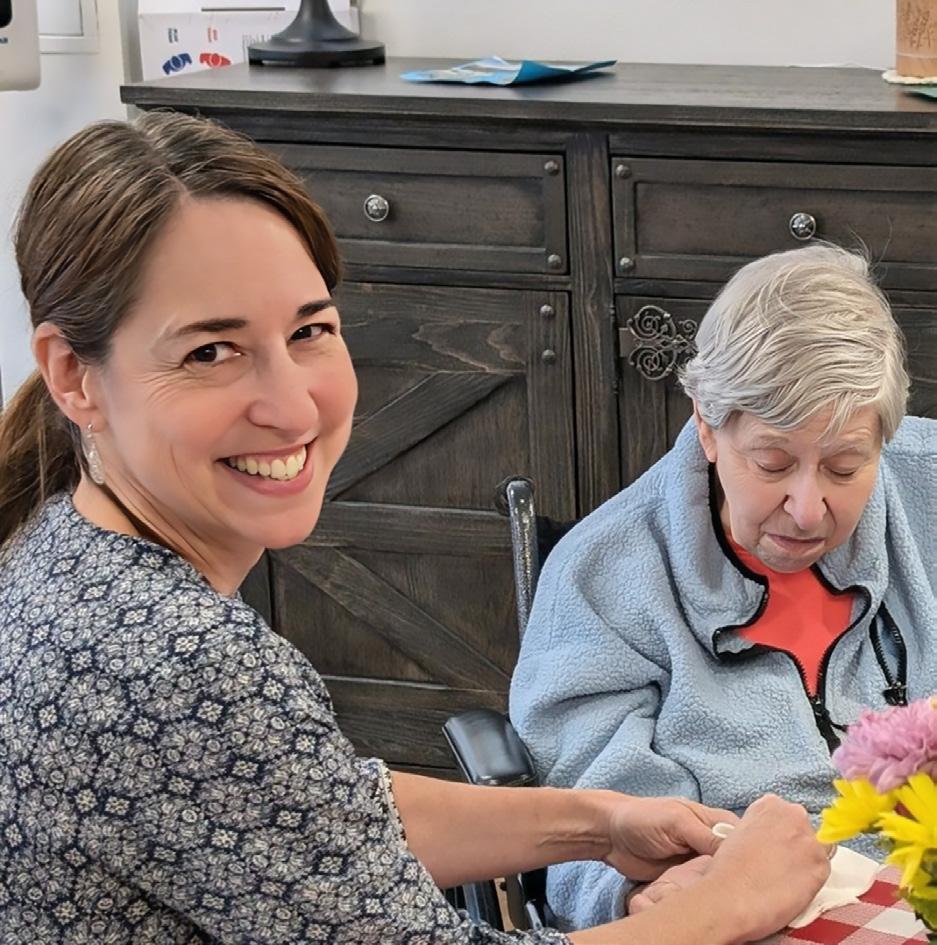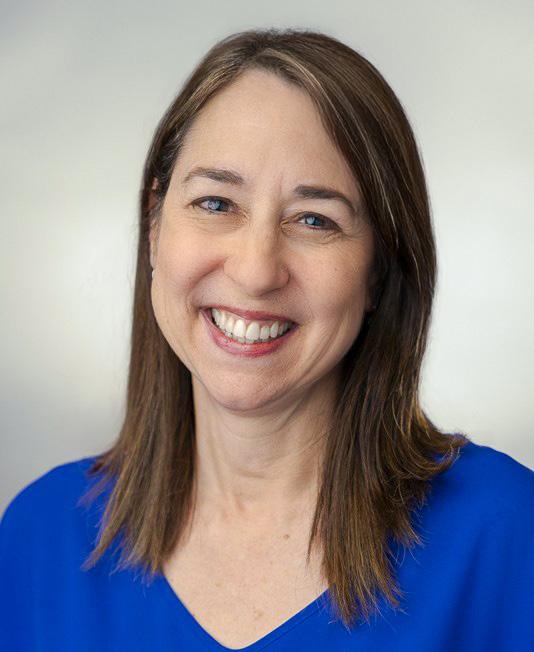
4 minute read
Compassion in Action:
Q&A with Sun Health’s Memory Care Navigator
Q: How does dementia affect individuals emotionally and socially?
A: Dementia can deeply impact a person’s sense of identity, independence, and connection with others. Early on, individuals may experience fear, anxiety, embarrassment, or depression as they notice cognitive changes.
Q: How does the Sun Health Memory Care Navigator program support families emotionally?
As the condition progresses, social withdrawal is common, often driven by difficulty communicating or feeling misunderstood. Relationships shift, routines are disrupted, and a once-confident person may feel isolated or frustrated.
Q: What are some of the emotional challenges families face?
A: Families often describe the experience as grieving in real-time (also known as ambiguous loss)—their loved one is still physically present, but changes in memory, mood, and behavior can be painful. Care partners may feel overwhelmed, helpless, or isolated themselves.
Guilt, burnout, and a sense of role reversal (especially for adult children or spouses) are common emotional burdens.
A: The program provides one-on-one support, helping individuals and families process feelings of grief, loss, fear, or frustration. Navigators offer compassionate guidance and education, validating what families are going through and helping normalize the emotional rollercoaster.
They also connect families with peer support groups, social activities, and resources to strengthen coping and resilience. Importantly, this program is complimentary, anyone can make a referral, and a physician referral is not required.
Q: Can you share an example of the program in action?
A: Shortly after I joined Sun Health as a Memory Care Navigator, I was approached by Alice during a community training. She shared her concern about her best friend, Anne, who was showing signs of cognitive decline. As a seasonal resident, Alice was especially worried—she would be leaving town in just three months, and Anne, a widowed woman with no local family or children, lived alone with her dog, Rocky.
Over the next three months, I worked closely with Anne, building trust and helping her form a plan. Together, we assembled a support network to assist with everything from touring assisted living communities (making sure they were pet-friendly and budget-conscious), securing important legal documents, and reaching out to Anne’s out-of-state brother, to organizing a real estate agent, a senior moving team, transportation, and even the sale of Anne’s golf cart. I also attended neurology and assisted living assessment meetings with Anne to offer support and clarity, and I helped ensure she would still have access to Catholic Mass services and her cherished weekly golf outings with friends.
When Alice returned to her summer home, she did so with peace of mind, knowing Anne had a solid support plan in place. Today, Anne and Rocky are happily settled into a warm and welcoming assisted living community, enjoying companionship, meaningful routines, and hot meals. I still visit and remain a trusted part of Anne’s circle of support.
Q: How does the program support social connection?
A: Navigators facilitate a bimonthly caregiver support group. Additionally, Sun Health was recently awarded a grant from the city of Surprise to offer a new program called Caring Connections in which couples share the dementia journey together, connecting with others facing similar challenges. The goal of such programs is to reduce isolation, strengthen relationships, and provide a space for mutual encouragement and hope.
See times, dates, and locations on page 11 in this edition of LiveWell magazine.
Q: What about more practical needs—like medical care, planning, and day-to-day challenges?
A: Memory Care Navigators help families understand the progression of dementia, identify and access medical care, and plan for the future. They assist with locating in-home help, coordinating care, securing legal documents, and connecting families with resources such as respite care and housing options.
Every step is personalized and paced to meet the family's needs.
Q: What’s the overall mission of the Memory Care Navigator program?
A: The mission is to walk alongside individuals and families throughout the dementia journey— not only offering practical tools and expert knowledge but also providing emotional support, connection, and reassurance. And because it is free, open to anyone, and does not require a physician referral, Sun Health ensures that support is accessible when families need it most. At Sun Health, no one has to face memory loss alone.



